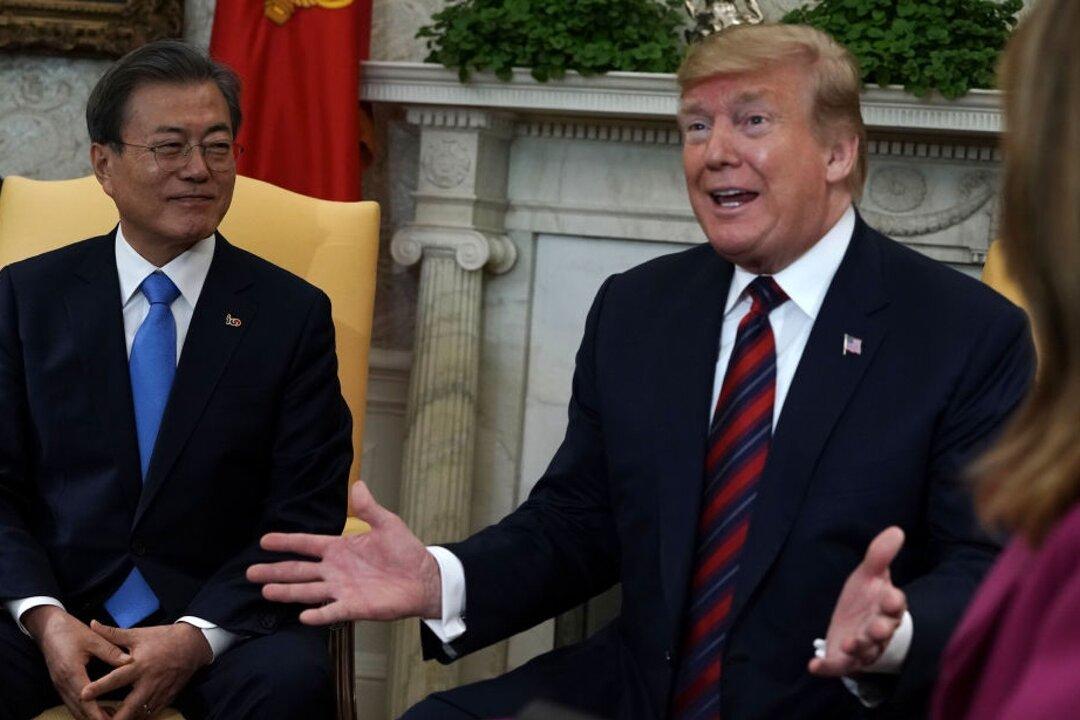President Donald Trump said on Aug. 7 that South Korea is willing to pay the United States “substantially more” than it previously did for defending the nation from the nuclear-armed North Korea.
“South Korea has agreed to pay substantially more money to the United States in order to defend itself from North Korea,” Trump wrote on Twitter Wednesday.





